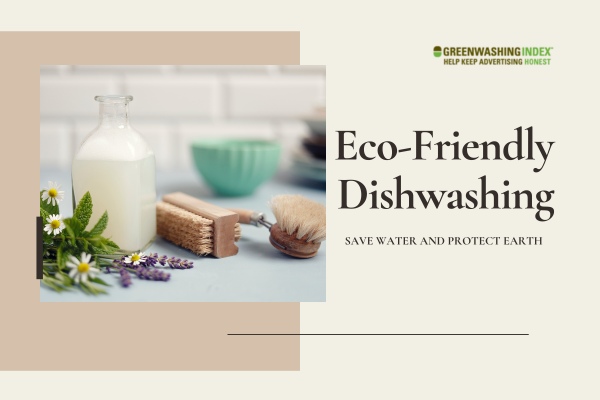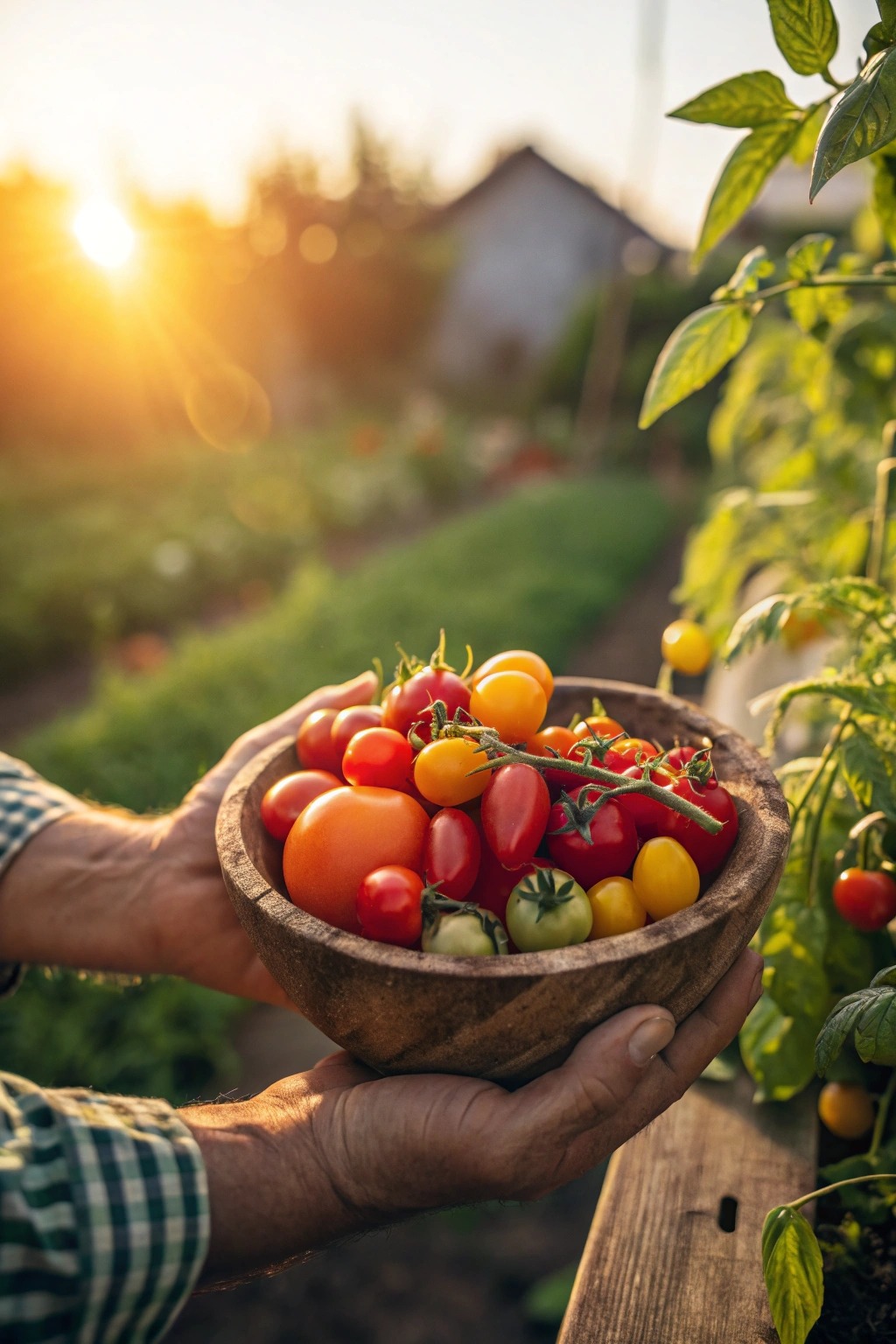In today’s world, the quest for sustainability has led many to consider whether dishwashers are eco-friendly options. The rise of the eco dishwasher presents a compelling alternative to traditional washing methods, promising not only cleaner dishes but also a reduced environmental impact.
An eco-friendly dishwasher can significantly lower water and energy consumption, transforming a mundane chore into a responsible choice for the planet. As we explore this topic, we’ll uncover how these innovations can reshape our daily routines while benefiting both our wallets and Mother Earth.
Turning Towards Eco-Friendly Dishwashing
Doing the dishes is part of everyday life. Whether it’s scrubbing pots after a hearty family dinner or quickly rinsing a coffee mug, this daily task often goes unnoticed in its environmental impact.
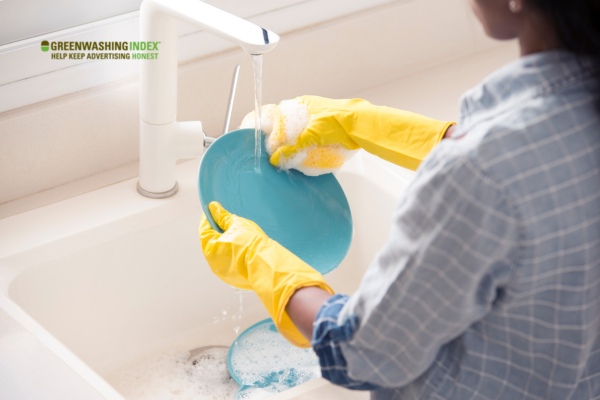
However, adopting eco-friendly dishwashing practices can make a big difference for our planet. Let’s explore how we can clean responsibly and embrace sustainable habits for a greener future.
The Environmental Impact of Traditional Dishwashing Methods
Traditional dishwashing methods are more harmful to the environment than most of us realize. For instance, leaving the tap running while washing plates wastes gallons of water, which could otherwise be conserved. This water wastage, combined with energy consumption, adds unnecessary strain on our planet’s limited resources.
The chemicals in conventional dish soaps are another cause for concern. These aggressive formulas often contain toxins that pollute rivers and oceans, harming aquatic life. Additionally, plastic sponges and scrubbers, which don’t decompose easily, end up clogging landfills for years, contributing to plastic pollution.
Even dishwashers have their own environmental impact. Many traditional models consume a large amount of water and electricity, which typically comes from non-renewable energy sources like coal or natural gas. The carbon footprint created by heating water for dishes adds to the problem.
It’s clear that small, everyday habits—like how we clean our utensils and plates—can have significant environmental consequences.
Eco Friendly Dishwashing Liquid
In today’s environmentally conscious world, consumers are increasingly seeking sustainable alternatives for everyday household products. Eco-friendly dishwashing liquid represents a significant step towards reducing environmental impact and protecting personal health. These innovative cleaning solutions offer a powerful yet gentle approach to dish cleaning, utilizing natural ingredients that are kind to both surfaces and ecosystems.
By choosing plant-based dishwashing liquids, individuals can make a meaningful contribution to environmental preservation while maintaining high cleaning standards.
Benefits of Eco-Friendly Dishwashing Liquid
Environmental Protection – Eco-friendly dishwashing liquids are designed to be biodegradable and minimize environmental pollution. They break down easily in water systems, reducing harm to aquatic life and preventing the introduction of toxic chemicals into ecosystems.
Health & Safety:
- Free from harsh chemicals like phosphates and parabens
- Gentler on skin, especially for those with sensitivities
- Safer for households with children and pets
Cleaning Effectiveness
Natural dishwashing liquids are highly effective at cleaning, utilizing ingredients like coconut oil and citrus extracts to cut through grease and food residues. They provide powerful cleaning without compromising environmental integrity.
Sustainable Packaging
Many eco-friendly brands use recyclable packaging, further reducing their environmental footprint. Some companies even implement plastic-negative strategies, recycling more plastic than they produce.
Cost-Effectiveness
While slightly more expensive initially, these products are often concentrated, meaning users need less product per wash. This makes them economically viable in the long term.
Key Ingredients in Eco-Friendly Dishwashing Liquids:
- Plant-based surfactants
- Essential oils
- Natural extracts like citrus and coconut
- Biodegradable cleaning agents
By choosing eco-friendly dishwashing liquid, consumers actively participate in protecting the environment while maintaining high cleaning standards.
Eco Friendly Dishwashing Soap
Eco-friendly dishwashing soap represents a sustainable alternative to traditional cleaning products, offering significant environmental and health benefits. These innovative cleaning solutions are designed to minimize ecological impact while effectively cleaning dishes. By utilizing natural ingredients and biodegradable formulations, eco-friendly dish soaps help reduce water pollution, protect aquatic ecosystems, and minimize exposure to harsh chemicals.
Types of Eco-Friendly Dish Soaps
Eco-friendly dish soaps come in diverse formulations, catering to different preferences and environmental considerations. These sustainable cleaning solutions range from liquid concentrates to innovative solid bars, each designed to minimize ecological impact while delivering effective cleaning performance.
Consumers can now choose from plant-based, biodegradable options that prioritize both environmental responsibility and kitchen hygiene.
- Liquid Dish Soap: Plant-based formulations with natural ingredients.
- Dishwashing Powder: Concentrated, environmentally conscious cleaning option.
- Solid Dish Soap Bars: Zero-waste alternative with minimal packaging.
Key Environmental Benefits
Eco-friendly dish soaps play a crucial role in environmental conservation by significantly reducing harmful chemical runoff into water systems. These sustainable cleaning solutions minimize aquatic ecosystem damage, protect marine life, and decrease overall environmental pollution.
By choosing biodegradable formulations, consumers directly contribute to reducing chemical contamination and supporting ecological balance.
Reduced Plastic Waste: Eco-friendly dish soaps often come in recyclable or minimal packaging, addressing the significant plastic pollution problem. Approximately 91% of plastic is not recycled, making these sustainable options crucial.
Biodegradability: These soaps break down naturally, preventing long-term environmental contamination. Microbes in the environment decompose the soap into harmless components, protecting aquatic life.
Health and Environmental Advantages
Eco-friendly dish soaps offer profound benefits for personal and planetary wellness. By eliminating harsh synthetic chemicals, these sustainable cleaning solutions protect human health and minimize environmental contamination.
They reduce exposure to toxic substances, prevent water pollution, and support ecological balance. Natural ingredients ensure safer cleaning experiences while maintaining high performance standards and promoting responsible consumption.
- No Harsh Chemicals: Eliminates synthetic fragrances and toxic ingredients.
- Natural Ingredients: Uses plant-based components like coconut oil and citrus extracts.
- Safer Surfactants: Derived from natural sources such as coconut oil, corn, or sugar.
Cleaning Effectiveness: Contrary to misconceptions, eco-friendly dish soaps are highly effective at cleaning. They can remove grease and food particles just as well as traditional soaps, often using natural enzymes and essential oils.
Choosing the Right Eco-Friendly Dish Soap
Selecting the perfect eco-friendly dish soap requires careful consideration of multiple factors. Your choice impacts not just cleaning effectiveness, but also environmental sustainability and personal health.
Consider your specific needs, such as dish type, water hardness, skin sensitivity, and environmental commitment when evaluating different eco-friendly soap options.
- Certifications from environmental organizations
- Biodegradable ingredients
- Minimal or recyclable packaging
- Plant-based surfactants
- Absence of phosphates and chlorine
Dishwasher Environmental Impact
Dishwashing is an essential household task that intersects with environmental sustainability. As global consciousness shifts towards more responsible resource management, understanding eco-friendly ways to wash dishes becomes increasingly important.
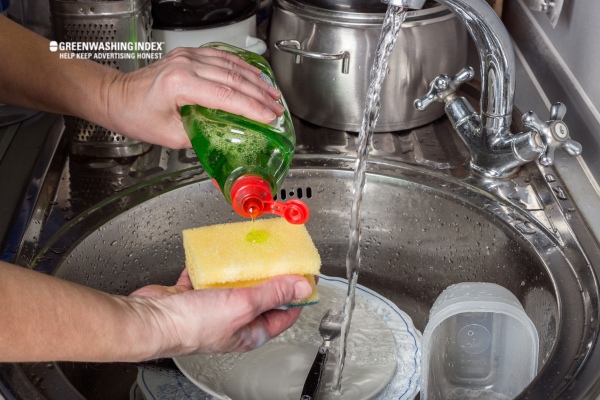
Consumers and environmentalists are seeking methods that minimize water usage, reduce energy consumption, and lower overall carbon footprints.
Eco-Friendly Ways to Wash Dishes
Embracing sustainable dishwashing practices is more than a trend—it’s a responsible approach to environmental conservation. By making mindful choices in our daily cleaning routines, we can significantly reduce water consumption, minimize energy usage, and decrease our overall carbon footprint.
These eco-conscious methods not only protect our planet but also contribute to long-term resource preservation and environmental health.
Water Conservation Strategies
- Use an eco-friendly way to wash dishes by filling two basins instead of running continuous water
- Modern dishwashers consume 3-4 times less water than traditional hand washing methods
- Collect and reuse rinse water for plants or garden irrigation
Energy-Efficient Dishwashing Techniques
Energy-efficient dishwashing techniques represent a critical intersection between household convenience and environmental responsibility. By implementing smart strategies, consumers can significantly reduce energy consumption, lower utility bills, and minimize their carbon footprint.
Modern technological advancements and conscious user behavior can transform a routine chore into an eco-friendly practice that benefits both personal finances and global sustainability efforts.
- Choose dishwashers with high energy star ratings
- Select lower temperature wash cycles
- Avoid pre-rinsing dishes to reduce water and energy consumption
Sustainable Dishwashing Practices
Sustainable dishwashing practices represent a critical intersection between daily household chores and environmental responsibility. By implementing mindful techniques and using eco-conscious tools, individuals can dramatically reduce water consumption, minimize energy usage, and decrease overall ecological footprint.
These practices not only contribute to environmental conservation but also promote resource efficiency and responsible consumption patterns.
Manual Washing Eco Tips
- Use biodegradable, phosphate-free dish soap
- Scrape dishes instead of rinsing under running water
- Use cold or lukewarm water when possible
- Invest in sustainable, reusable cleaning tools
Machine Dishwashing Recommendations
- Run only full loads to maximize efficiency
- Disable heated drying cycle
- Choose eco-mode settings
- Regular maintenance of dishwasher for optimal performance
Environmental Impact Metrics:
- Eco-friendly dishwashing can reduce water consumption by up to 50%
- Proper techniques can lower energy usage by 30-40%
- Sustainable methods contribute to reduced household carbon emissions
Recommended Eco-Friendly Cleaning Products
Choosing sustainable cleaning products is a powerful way to reduce environmental impact and promote responsible consumption. These innovative solutions not only effectively clean dishes but also minimize harmful chemical runoff, support ethical manufacturing practices, and contribute to a healthier ecosystem.
By selecting eco-conscious brands, consumers can make meaningful contributions to environmental preservation while maintaining high cleaning standards.
- Plant-based dish soaps
- Bamboo scrub brushes
- Compostable sponges
- Microfiber cloths made from recycled materials
By adopting these eco-friendly ways to wash dishes, individuals can significantly contribute to environmental conservation while maintaining clean, hygienic kitchenware. Small changes in daily habits can lead to substantial positive impacts on our planet’s ecosystem.
Changing Habits – Sustainable Practices for Eco-Friendly Dishwashing
Dishwashing is a daily chore that often goes unnoticed in terms of its environmental impact. However, our simple washing habits can significantly contribute to water conservation, energy efficiency, and reducing greenhouse gas emissions.
By making mindful choices in how we clean our dishes, we can transform this routine task into an opportunity for environmental stewardship.
| Category | Sustainable Practice | Environmental Benefit | Implementation Tips |
|---|---|---|---|
| Water Conservation | Use basin instead of running tap | Reduces water consumption by up to 50% | Place a large basin in sink; collect and reuse water for plants |
| Dishwasher Efficiency | Full load washing | Minimizes energy and water usage | Wait until dishwasher is completely full before running |
| Cleaning Products | Eco-friendly, biodegradable detergents | Reduces chemical pollution | Choose products with plant-based ingredients |
| Temperature Management | Cold or lukewarm water | Saves energy | Avoid using hot water for routine dish cleaning |
| Dish Scrubbing | Use sustainable sponges/brushes | Reduces plastic waste | Choose bamboo, natural fiber, or compostable cleaning tools |
| Drying Method | Air drying | Eliminates electricity consumption | Use dish rack or towel instead of electric dryer |
| Waste Reduction | Minimize disposable items | Decreases landfill contribution | Use reusable dishes and avoid single-use products |
By implementing these practices, individuals can significantly reduce their environmental footprint while maintaining clean dishes and supporting broader sustainability efforts.
Advantages of Opting for Eco-Friendly Dishwashing
Environmentally conscious world, choosing eco-friendly dishwashing products has become more than just a trend—it’s a responsible choice that impacts both personal health and global sustainability. By switching to natural, biodegradable dishwashing solutions, consumers can significantly reduce their environmental footprint while maintaining excellent cleaning performance.
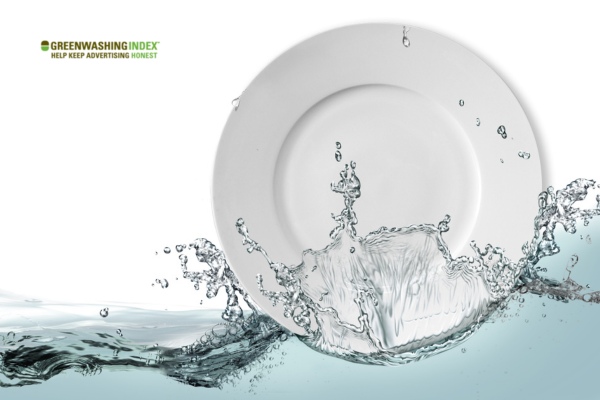
These products offer a holistic approach to household cleaning that protects our health, preserves water ecosystems, and supports sustainable manufacturing practices.
Health Benefits
Embracing eco-friendly dishwashing solutions transforms your kitchen cleaning routine into a health-conscious practice. These natural products protect your skin from harsh chemicals, reducing the risk of allergic reactions and long-term dermatological issues.
By choosing plant-based formulations, you’re not just cleaning dishes, but also safeguarding your family’s well-being and creating a safer home environment.
- Skin-Friendly Ingredients: Natural dishwashing liquids are gentle on hands, using plant-based surfactants that prevent skin irritation.
- No Harmful Chemicals: Free from toxic substances like phthalates, triclosan, and sodium lauryl sulfate.
- Hypoallergenic: Ideal for people with sensitive skin or allergies.
Environmental Advantages
Our planet’s delicate ecosystems are under constant threat from synthetic chemicals. Eco-friendly dishwashing products offer a sustainable solution by minimizing water pollution and reducing harmful chemical runoff.
These biodegradable alternatives break down naturally, ensuring minimal environmental impact and protecting marine life from toxic contamination, thus contributing to global conservation efforts.
- Biodegradable Composition: Breaks down naturally without harming aquatic ecosystems
- Reduced Water Pollution: Plant-based ingredients minimize chemical exposure to marine life
- Sustainable Packaging: Often packaged in recyclable or minimal waste containers.
Cleaning Effectiveness
Natural doesn’t mean compromising on performance. Modern eco-friendly dishwashing liquids leverage advanced botanical extracts and enzymatic technologies to deliver powerful cleaning results.
These innovative formulations cut through grease, eliminate bacteria, and leave dishes sparkling clean, proving that environmental responsibility and exceptional cleaning power can coexist harmoniously in a single product.
- Powerful Natural Ingredients: Uses essential oils and enzymes to effectively cut through grease
- Comparable Performance: Matches or exceeds traditional dishwashing liquid’s cleaning power
- Versatile Cleaning: Effective on tough stains using natural components
Economic Considerations
Investing in eco-friendly dishwashing products is a smart financial decision. Concentrated formulas mean less frequent purchases, and their efficient cleaning properties reduce water and energy consumption.
By supporting sustainable brands, consumers contribute to a circular economy while enjoying high-quality, cost-effective cleaning solutions that benefit both their household budget and the environment.
- Cost-Effective: Concentrated formulas mean less product usage
- Long Shelf Life: Typically lasts 1-2 years.
- Supports Small Businesses: Often sourced from local, sustainable manufacturers.
What are 9 Steps Dishwashing?
Dishwashing is an essential household task that ensures clean, hygienic kitchenware and prevents the spread of bacteria. Whether using a dishwasher or washing by hand, the process involves careful preparation, thorough cleaning, and proper sanitization.
The right techniques can make dishwashing more efficient, save water, and maintain the quality of your dishes.
- Preparation
- Scrape off excess food from dishes
- Remove large food particles into the garbage
- Sort dishes by type and level of soiling
- Soaking:
- Soak heavily soiled items for 15-30 minutes
- Use warm water and potentially a cleaning solution
- Allow tough stains to loosen before washing
- Sink/Machine Preparation:
- Clean the sink or prepare the dishwasher
- Fill with warm water (120-140°F)
- Add appropriate detergent
- Washing Order:
- Start with cleanest items first
- Typical order: glasses, flatware, plates, serving utensils, bowls, pots
- Use appropriate cleaning tools (soft sponge, brush)
- Scrubbing:
- Use dish soap and warm water
- Clean thoroughly but gently
- Avoid scratching delicate surfaces
- Rinsing:
- Use clean, fresh water
- Ensure all soap residue is removed
- Rinse at appropriate temperature (43°C/109°F)
- Sanitizing:
- Use sanitizing solution or hot water
- Options include:
- 100 ppm chlorine solution
- 200 ppm quaternary ammonium
- 77°C water
- Drying:
- Air dry preferred
- Place dishes upside down on a clean rack
- Avoid using towels to prevent bacterial transfer
- Clean-up:
- Empty and clean sink or dishwasher
- Wipe down surfaces
- Store clean dishes properly
These comprehensive steps ensure not just clean dishes, but a hygienic kitchen environment.
FAQs
How to wash dishes without wasting water?
Use a two-basin system: one for washing with soapy water, another for rinsing. Turn off the tap while scrubbing, and only run water when necessary to conserve water.
Can doing dishes by hand be eco-friendly?
Yes, washing dishes by hand can be eco-friendly if you use less water. A filled sink rather than running water helps a lot.
How does using a dishwasher conserve water?
Dishwashers can save water because they use precise amounts. Efficiency has improved with technological advancements in newer models.
Conclusion
Embracing eco-friendly dishwashing practices is a pivotal step towards sustainability. By opting for an eco dishwasher or using water-saving techniques, individuals can significantly reduce water consumption and lower their utility bills. Furthermore, selecting biodegradable soaps contributes to minimizing harmful chemicals that enter our waterways.
It sounds like these small changes not only benefit the environment but also promote a healthier lifestyle. Ultimately, adopting an eco-friendly dishwasher approach fosters a collective effort to protect our planet for future generations.

